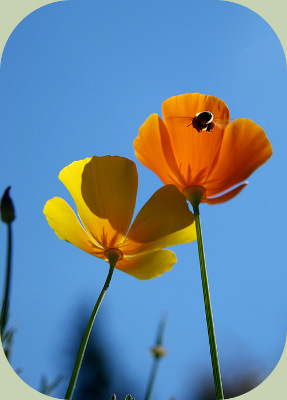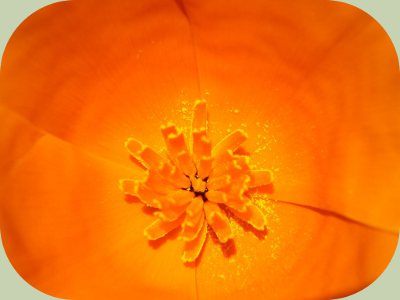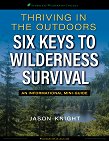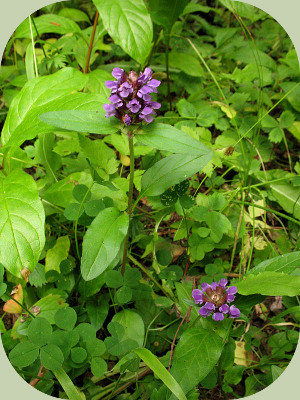Fukuoka Farming
Working with Nature

Fukuoka Farming is a unique approach to natural farming that utilizes direct observations of nature and applies them to growing food, and is based on the work of "The One Straw Revolution" author Masanobu Fukuoka. Fukuoka's approach is considered one of the key inspirations to both the organic farming and permaculture movements.
This approach does not use conventional farming techniques, instead it works with the natural world to create healthy, interdependent growing systems. His farming was based in a philosophy of working with the natural cycles and processes of the natural world, rather than forcing them to do what he wanted them to when he wanted them to, as is so often done with conventional farming.
His perspective can require a significant shift inside the individual, when it comes to understanding farming. In his own words:
"The ultimate goal of farming is not the growing of crops, but the cultivation and perfection of human beings."
The 4 Principles of Fukuoka Farming
Fukuoka's farming is guided by 4 firmly practiced principles:
- No Till
- No Fertilizer
- No Weeding
- No Pesticides

No tilling means that there is no turning or plowing of the soil. Instead, the earth is allowed to cultivate itself through the penetrating roots of plants, the digging activities of earthworms, micro-organisms and other small animals.
No fertilizer means that no chemical fertilizer or prepared compost is used. Fukuoka has observed that careless use of compost dressing can actually drain the soil of the essential nutrients. Meanwhile, if left to maintain its own fertility, the earth will maintain its own fertility in accordance with the orderly cycle of plant and animal life present on the land.
No weeding means that weeds are not removed either by herbicides or by cultivation. Fukuoka observed that weeds play an important part in the building of soil fertility and in balancing the biological community. So control, rather than elimination is the approach used in Fukuoka farming. This involves using straw mulch, a ground cover of white clover inter-planted with the crops, and also temporarily flooding his fields to effectively control weeds.
Be More Prepared For Your Next Outdoor Adventure!

Don't leave without knowing these six essential survival skills. Our free survival mini guide reveals the strategies of:
- Shelter & fire to prevent the number one cause of death
- Obtaining clean water to avoid life-threatening dehydration
- Common wild survival foods and other critical skills!

No pesticides means first of all changing one's attitude towards the natural world, and seeing it as Fukuoka did as being in perfect balance when undisturbed by careless human impact. To clarify, harmful insects and diseases are always present in a landscape. But in a natural setting, they do not normally exist to such a level as to require the use of chemical control agents to correct the imbalance. Rather, Fukuoka believed that growing sturdy crops in a healthy environment is the key. This includes having a great diversity of different plants growing together, which provides habitat for predators of harmful insects and reduces many of the obstacles created by monocrop agriculture.

Following Nature's Example
Fukuoka farming is much more than farming organically or sustainably. Rather, this form of farming is a process of learning from the natural world and following its example and the wisdom already inherently found there. In Fukuoka's words, it requires the abandoning of the "logical approach." For instance, his method of seeding grains was to seed them when the grains would naturally be dropped to the ground, rather than say in the spring after the danger of frost has passed. This required close observation of the natural cycle of those plants.
To give an example, in his grain fields Fukuoka started in early October by broadcasting clover among the rice, followed by his winter grain (rye and barley) in the middle of the month. In early November, the rice sown the previous year is harvested. Then he would sow next year's rice seed and lay straw across the field.
Each species is seeded when it would choose to seed naturally, and the straw from the cut field returned to act as mulch. The presence of the clover helped to maintain the fertility of the soil, as well as allow for less space for other weeds to come in and take over. When harvested, everything that is grown in the field is returned to it, minus the grain itself.
Being part of the natural world
Fukuoka farming applies the observation that everything in the natural world is there to play a role in the greater harmony and that it has its place.
When a problem in farming arises, it is through the close scrutiny of the natural processes that the solution is found, rather than through the application of chemical fertilizers or pesticides, nor through some other major disruption of the natural systems such as tilling or plowing. Rather, it works through supporting the systems that already help keep it in balance. The Fukuoka farming approach takes patience, and a willingness to be part of the natural world rather than a conqueror over it.
By the way, a big part of why we love homesteading & permaculture skills so much is because they are a natural extension of learning about wilderness survival (both fields are all about self-sufficiency and working with nature to satisfy needs). An understanding of survival not only helps you become a better permaculturist, it empowers you with life-saving outdoor skills to keep you safe when out in nature. Right now you can get a free copy of our mini survival guide here, where you'll discover six key strategies for outdoor emergencies, plus often-overlooked survival tips.
Further Resources:
For more reading on the farming techniques of Masanobu Fukuoka, see the following link:
The Amazing Natural Farm of Masanobu Fukuoka
Interested in learning more about nature-based solutions to sustainable living? Check out our Permaculture Courses.

About the Author: Filip Tkaczyk is a periodic guest teacher at Alderleaf. He also wrote the field guide Tracks & Sign of Reptiles & Amphibians. Learn more about Filip Tkaczyk.
Return from Fukuoka Farming back to Permaculture Articles
Is The Essential Wilderness Survival Skills Course Right for You? Take the "Online Survival Training Readiness" Quiz
See for yourself if this eye-opening course is a good fit for you. It takes just a few minutes! Get your Survival Training Readiness Score Now!

Grow Your Outdoor Skills! Get monthly updates on new wilderness skills, upcoming courses, and special opportunities. Join the free Alderleaf eNews and as a welcome gift you'll get a copy of our Mini Survival Guide.

 The Six Keys to Survival: Get a free copy of our survival mini-guide and monthly tips!
The Six Keys to Survival: Get a free copy of our survival mini-guide and monthly tips!
Learn more